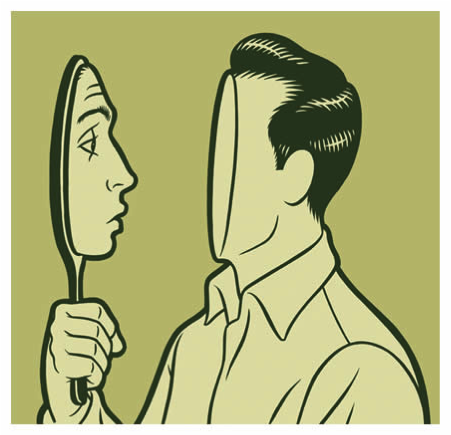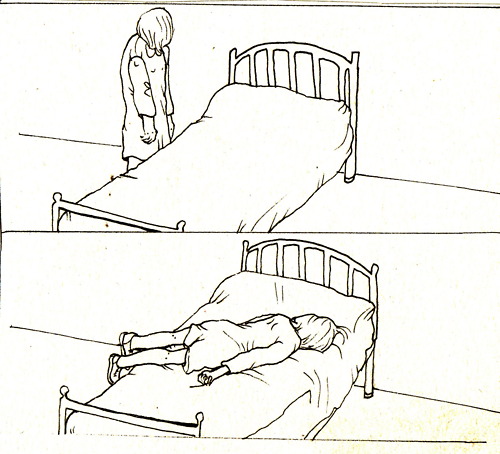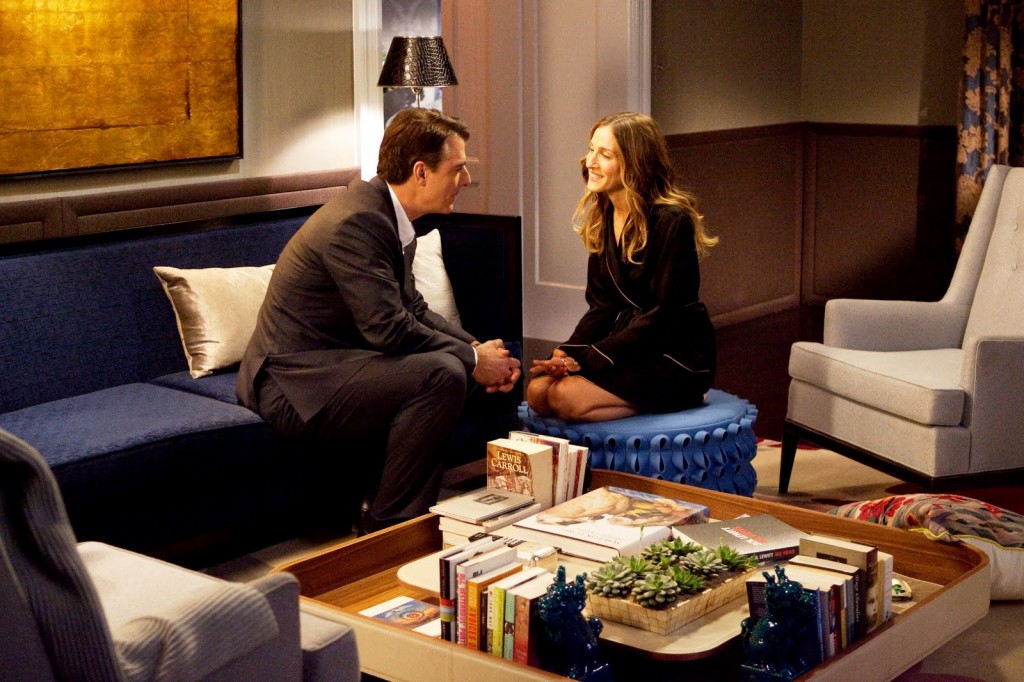Monthly Archives: June 2013
My Compliment, Your Insult: How the exact same statement can affect two people differently
Everyone has a different perspective on life because everyone has gone through different experiences and seen different things; no one is exactly the same- (I know you’re thinking… “duh”). But this past week I have begun to understand just how different the people we live among on a day to day basis actually are.
Last Friday I over heard a conversation between two of my friends who are African American. For clarity I will call one woman Lauren, and the other Alexa (these are not their real names). Lauren began to explain that she had been in a meeting with a white man, and afterwards, the man said to her that she was “a very articulate speaker.” Alexa immediately responded “oh, wow,” which left me extremely confused. What was wrong with being called articulate? As a person who often struggles to speak eloquently, I would love to be called articulate, I see that as such a compliment! There was obviously something that I did not understand, so I began to ask questions. It turns out, that Lauren and Alexa both feel that as women of color, being called “articulate” by a white man infers that he did not expect Lauren to be able to speak so well, because she is a black woman. This got me thinking… what are the things that I say to people, intending for it to be a complement because I, myself, would see it as a compliment, when in reality it is an insult to them because of who they are.
Many people hold the belief that asking questions infers that you don’t understand something, which has a negative connotation. The truth is, asking questions often does mean that you do not understand something, but not understanding is nothing that anyone should ever apologize for. Asking questions should be viewed as a positive thing. Asking questions infers that you care to learn more about a subject. There is humility in admitting that there are things that you just don’t know or understand.
Asking questions gives you the power to have relationships with people who have different perspectives from you. Asking questions gives you the ability to be conscious of how other people perceive the world around them. While you may never truly understand the life they have lived, you can still be empathetic by being open and asking questions. You can also help others understand who you are and where you are coming from, by being open to the fact that they, like you, can’t possibly know everything. So, my goal for the remainder of the summer (and for the rest of my life I suppose) is to never stop asking questions, because there are always always ALWAYS going to be things that I just can’t possibly understand on my own based on who I am.
The 5 types of people you will meet outside an abortion clinic
1. The escorts
Hi, that’s me! Last Saturday 2 other Moxies and I went over to Queens to volunteer at Choices, the medical center for women run by Merle Hoffman (look her up, read her book, you NEED to know about this lady AKA watch the video at the bottom of the post) who we met on a toure our first week of this program. Choices offers women an insane variety of medical services, and regardless of how much money the women can come up with to pay for said services, NO ONE gets turned away. We’re talkin’ cancer screenings, birth control, pre-natal care, COLONOSCOPIES… but what really draws everyone’s attention to Choices is that it offers safe, legal abortions. And so, dun dun dun, there are obviously some people who cannot stand the thought of a woman, whether she be old, young, already-mother, virgin, slut, rape victim, or whatever, having the right to terminate her pregnancy. These people DO NOT like that Choices performs abortions, like they HATE abortions. Guess what? I ALSO HATE ABORTIONS. I 100% wish they were completely unnecessary. Not because of the procedure itself, it’s one of the safest, if not THE SAFEST surgical procedure that exists, but because, in this world, unplanned for, unwanted pregnancies happen and since I personally believe that the only thing worse than an unwanted pregnancy is an unwanted CHILD (ew & they cost a shit ton of money), I am SO SO SO grateful that medical centers like Choices can rid women of such undesirable situations. So last Saturday we went to the clinic and helped women get inside the door.
2. The protestors
Yes, exactly like the one you saw in Juno that told her “it has fingernails already.” In Juno, she was, in fact, discouraged from getting the abortion… and because it’s Hollywood and things always work out in love stories, it ended fine. Except I would have welcomed the presence of that protestor over any of the ones at Choices. They were not quiet, young females. They were older, many were male, and my gosh, their anti-choice protesting was much more aggressive. They really, really hate the escorts in a creepy-they-learn-your-name-and-smile-at-you-and-stand-really-close-to-you way. Skeevy, I had to shower for an hour that Saturday. A few stand holding massive posters of gory fetuses. Way more than you expect stand on the street. But I don’t just mean they stand on the street. I mean they make themselves a disruptive, aggravating presence to anyone (male, female, adult, 5 year old) who walks by. They hand out tiny pamphlets filled with misinformation (things like “death is a possible result of abortions” YAH IT WAS IN THE PRE ROE V WADE TIME WHEN ABORTION CENTERS WEREN’T AVAILABLE AND WOMEN WOULD DIE FROM ILLEGAL, BOCHED ABORTIONS PERFORMED BY SCAM ARTISTS OR THEIR STUPID BOYFRIENDS THAT LEFT THEM TO DIE AS SOON AS IT WENT WRONG) to absolutely everyone. One might even slip it into your seven-year-old daughters grip when you’re not looking.
3. The spectators
The protestors aren’t just handing out written, radical, religious jargon. They are verbally riling up any passersby to take a firm stance against Choices. Because talk about dead babies is quite alarming, they can sure gather a crowd. The spectators linger, peer, twist their heads in all sorts of directions to watch this propaganda war (and as I saw at the end of the day when Mary Lou, who the protestors call “Mary Lou The Marxist”, was trying to block a very large male protestor from taking pictures of a young woman while they were escorting her into the clinic- PHSYICAL war) between the creepy as fuck spectators and us, in the white coats, just tryna get women (and MEN and CHILDREN, cuz abortion clinics aren’t just places where 16 year old sluts go alone and ashamed) to the damn entrance.
Let me tell you about one spectator. Not only because he made me fear for my life, but mostly because he completely represented the evil tricks the protesters use. He was this guy… something was off… we think drunk cuz he was stumbling and his eyes were twitching and I don’t know, but BASICALLY, he was exactly the type of person the protesters feed anti-choice propaganda to. SO they fed him all these false facts and really graphic images and basically sent him over to me and another young, female volunteer. So for probably 5 minutes he stood like a foot from my face yelling and saying ALL THIS STUFF and I was just like SIR WE DON’T NEED TO TALK ABOUT IT PLEASE GET AWAY. Whatever, I don’t care, I realized he was pretty irrelevant in the whole political movement (Claire also mentions him in her recent blog post and gives some good details about how many kids he has and how he feels about child support). But what really pissed me off, AND SHOULD PISS YOU OFF, is that while he was doing this, one of the protesters stood about a yard away egging him on! Yes, she stood there repeating in a creepy monotone, “yes, isn’t that gross that they do that.” “Yeah, tell them how ungodly it is.” I hated her for abusing his vulnerability like that even more than him for spitting his ignorance all over me.
4. The patients
I don’t really want to talk about them too much, they get enough unwanted attention. Ugh, like don’t you just feel so bad for someone who wants safe medical treatments or maybe just wants to get a colonoscopy or maybe just wants like a pamphlet on how to plan their family/future??? I really hated standing on the sidewalk waiting from patients, but if the volunteers don’t go out there, the protestors could literally PHYSICALLY keep them from entering the clinic.
5. The people who will surprise you
I am not joking when I tell you that at the end of the day a very large man walked up to us and told us this beautifully logical explanation for why he has no anti-choice sentiments: He is a male and why should he have any say in what a woman does with her body and her health? We’re talkin’ an unprompted monologue that articulated exactly what I would ever want to hear from a man OR REALLY ANYONE regarding the logic of pro-choice. He had my heart. But then he said something surprising when one of the other volunteers asked him if he worked in the area: “No, I’m actually getting help from the methadone clinic around the corner. So yeah, obviously I’m not one to judge someone who falls upon a hard time. Like if a woman needs to have an abortion, GO FOR IT.” So here we were, starring into the eyes of one of the most reasonable men I have ever heard from. HE GETS IT. Maybe it’s so easy for these predominantly white, male, older politicians to think that if a woman is pregnant, it will allllll just work out. They really need to have a little more respect for the hard times.
Here is a video that shows the ins and outs of Choices… Listen to Merle, see the inside of the finished medical center, and stick around for the end for an unfortunately large showing of protesters.
3 Ways to Tell You’re a Bumbling Social Worker
Poor Thing.
You’re trying, you’re sighing, and you’re even crying.
But for some reason you just can’t get through. Why not?
If in addition to your sniffling you are doing any combination of the following things, you are doing your job incorrectly.
I’ll preface this post by noting that I know almost nothing about social work; I am merely an unpaid intern who has undergone a week of lengthy trainings alongside other rising professionals in the field. Therefore, my advice should be taken with a grain of salt. Nonetheless, I feel as though I have gained valuable knowledge from my week of training, and I am more than willing to share this newly acquired information with all of you.
We as humans have the capacity to empathize with others, to take on their feelings and circumstances as if they were our own. Though as a social worker you are obviously equipped with this ability, it is not your job to use it. I repeat: IT IS NOT YOUR JOB TO EMPATHIZE WITH THE CLIENT. I know you may have heard otherwise, but consider the negative repercussions of such an impassioned bond. Assuming you understand a person who doesn’t feel as though you do can lead to unnecessary strife. The foundations of a good social-worker client relationship are built on cultural competency, rapport, and a shared understanding of the relationship. That said, it is nearly impossible to attain such a connection if:
1. You refuse to acknowledge your beliefs and biases.
- Many people make the mistake of assuming that because they do not define themselves as a “racist,” “sexist,” or any umbrella term of the like, they do not harbor any preconceived notions based on an individual’s identity. The first step to understanding a culture different from your own is acknowledging the difference. This variance is complicated by your own personal beliefs, which may take some courage to confront. That said, be compassionate with yourself when these biases crop up, because no one can truly exist without belief in something, nor should he/she want to. We are human, after all.
2. You remain ignorant about the client’s culture.
- It’s one thing to be ignorant, but it’s another to be aware of your ignorance and continue in your lack of knowledge. A client may come to session extremely disagreeable and unwilling to cooperate. He/she may refuse to comply with your “safety plan” and threaten to return to a dangerous situation. However, the problem may be you, not them. If you continue to suggest solutions contrary to the client’s culture/beliefs, you will continue to struggle in the relationship. A good way to get to know your clients better is to ask them questions. How does your family do this? Would it be acceptable for you to do this? In this situation, how would you respond? Be creative. No question is too small.
3. You feel yourself more responsible for the client’s welfare than the client him/herself.
- This one is pretty self-explanatory. You are not responsible for the client’s well being. He/she is. You are responsible with providing them ideas for safety, and sometimes catering to their legal/psychological needs, but you are not responsible for their happiness. Clients have to be responsible too.
Keeping these things in mind, you can really begin to work for effective change. My observations have suggested that the social services work best when those in a position of power are logical, detached, and unemotional. Though the empathetic impulse may come in handy in some situations, it may not always be effectual. Challenge yourself to be more than a social worker—be an efficient catalyst for change.
The 4 Benefits of Coming to Terms with Perceptions
 Since I was a child my mom always warned me about being aware of my attitude, the way I spoke, and how I behaved. She knew that I was a very-strong willed and outspoken child and now that I look back on this advice I think I can finally view it with a more open mind and understand that she was only trying to help me, she wasn’t trying to attack my personality. I fought my mom on this idea of “how people perceive me”. One, she’s my mom and for some reason I always want to challenge her and 2. Not to sound too blunt, but I didn’t really care what people thought of me. I believed that perceptions were these destructive ideas that, if I took them into consideration, would change who I am as a person, deconstruct my core values and turn me into a fake. Why should I act a certain way for anyone else? Why can’t I just be myself, if I change for others wont I lose the true me?
Since I was a child my mom always warned me about being aware of my attitude, the way I spoke, and how I behaved. She knew that I was a very-strong willed and outspoken child and now that I look back on this advice I think I can finally view it with a more open mind and understand that she was only trying to help me, she wasn’t trying to attack my personality. I fought my mom on this idea of “how people perceive me”. One, she’s my mom and for some reason I always want to challenge her and 2. Not to sound too blunt, but I didn’t really care what people thought of me. I believed that perceptions were these destructive ideas that, if I took them into consideration, would change who I am as a person, deconstruct my core values and turn me into a fake. Why should I act a certain way for anyone else? Why can’t I just be myself, if I change for others wont I lose the true me?
This attitude had a few positive outcomes. It developed me as a proud, confident and assertive young women, which I believe is important in the culture that we live in, which tries to break all of these characteristics down in women. I felt as if I was a more genuine person, because I left everything out on the table and didn’t hold back. Unfortunately, it played against me in many instances as well. Whether it created tension between friends and coaches, or presented me as someone who was dismissive, this lack of acknowledgment and lack of awareness of how others perceived me did not play to my favor in developing myself as an understanding, compassionate and empathetic individual.
So why bring up perceptions now, why am I finally looking at them as beneficial? This past week, through both a personal experience with another Moxie girl and after analyzing our readings on the “non-profit industrial complex” I found that understanding others perceptions is not only essential to the development of personal relationships, but to the impact that individuals and organizations can have on creating purposeful change on social issues…
Here is what I have learned, and how we can all benefit, if we pay more attention to our perceptions and others perceptions before we decide to dismiss them.
1. Communication: When we evaluate how someone perceives us, or how we perceive others we are ultimately dwelling on assumptions. We all know the old phrase; “when you assume you make an ass out of you and me,” so stop dwelling and start communicating. Perceptions can lead to conversation, which can create growth and understanding in relationships.
 2. Individual Growth and Development: Asking for feedback is difficult to do and not everyone handles criticism well. However, in the end, understanding how you come across to others and reflecting on ways to improve your presentation will be both beneficial and rewarding. If your goal is to come off as more reserved and observant rather than “in your face”, having an open mind about others perceptions can help you achieve this personal attitude goal.
2. Individual Growth and Development: Asking for feedback is difficult to do and not everyone handles criticism well. However, in the end, understanding how you come across to others and reflecting on ways to improve your presentation will be both beneficial and rewarding. If your goal is to come off as more reserved and observant rather than “in your face”, having an open mind about others perceptions can help you achieve this personal attitude goal.
3. Working within the system, and getting ahead: I have learned a lot about non-profit work within the last 3 weeks, and if there is one thing that continues to stick with me it is that they do not necessarily have the freedom that I understood them to have. There are limitations, rules and government standards that they must adhere to, sometimes these restrictions can even get in the way of an organization executing their mission and following through with their values. Sometimes we can’t play by the rules. When we are engulfed in a system that is still stuck in the traditional, patriarchal ways, we have to frame and present our ideas differently. I used to think this was being fake — but it is not. It is adjusting to the situation, where being upfront and totally open will never get you to your goal, and reshaping your requests can get you much further.
4. Everyone is unique: Everyone has a different identity marker that affects the way they experience the world. The way we perceive the world around us and how others perceive us is unique to the individual, therefore as much as I would like all people to address issues, such as breaking down gender and racial constructions through individual radical actions the repercussions for one individual may be very different than the repercussions of another. By trying to understand how different individuals are perceived by the outside world it not only reminds us that we can not place our own beliefs and ideals on others, but it also allows us to work on being more empathetic to others experiences.
How To Write A Blog Post in 30 Minutes or Less
Don’t have the time to express your thoughts and opinions on the web? Supervisor on your tail? Online blog getting old? Losing readers? Here’s your go-to guide on how to write a blog in 30 minutes or less (timer starts now!)
1. Smother pig’s blood all over your body and jump into shark infested waters
AKA write a title that gets people’s attention! Engage people in their curiosity or anger or whatever! Say something that catches their eye, peaks their interest, makes them feel or want to know more, and make them click! If you’re having trouble thinking of anything, make a how-to guide or allude to a list like this. They’re easy to read, easy to write, and don’t take very much time at all to create.
2. Write about stuff you actually care about
When you care about what you’re saying, writing a blog becomes much easier…and thus less time consuming. Don’t be afraid to talk about how you feel or engage with your emotions on a particular subject–regardless of what they are (perhaps you are feeling sassy like me!)
3. Address your audience
Who is your audience and why should they care about what you have to say? This is one of the most important questions to ask yourself. When you know who you’re writing to, it becomes easier and faster to write. For example, if your audience is a lot of stymied mid-20s girls confused about when, where, or how to blog post, creating a blog post like this would likely be good and engaging!
4. Add a picture
Some people just don’t like words nowadays so add a picture to take up space and engage with those viewers! It’s easy and fast. Plus, let’s face it, pictures are so darn cool. I’m including one of me writing this blog post (Thanks, Sarah!)
5. Don’t write too much
And don’t repeat yourself or use words over and over again unless you’re really trying to stick something with your readers. Notice how I kept using the word “engage”? Yeah. One of the best ways to save on time is to limit how long your blog post is. Keep it short ‘n sweet.
Hope I’ve engaged you for a little while! Hollaback at yo’ girl!
3 Things that I learned from Anita Hill
This week was the Moxie week of celebrities. After meeting Eve earlier in the week, we ended our Friday night with a viewing of the documentary Anita, and our very own Moxie pic with the woman herself. I must admit, I didn’t know too much about the name “Anita Hill” before the Moxie project; in fact, when Ada said we were going to meet Anita Hill, I yelled out the “OMG the singer??!!” (mistaking her for Anita Baker, which is weird because I am an avid fan of Anita Baker, I guess I got carried away because they have the same first name…stupid mistake, I know)
The truth is, I knew Anita Hill more by her image, then I did by her name. I googled her once I got back to my room and that notorious blue dress popped up on my computer, and instantly, I remembered her. I studied her in my AP Government class in high school and read her story in the introduction of Jaquelyn Dowd Hall’s Revolt Against Chivalry. LIGHTBULB TURNS ON! She’s that woman who accused Clarence Thomas of sexual harassment a long long time ago. As I watched her documentary however, in my mind she transformed from that woman who accused Clarence Thomas, to that woman who stood up and challenged workplace harassment. I’ve learned a whole lot from Anita Hill this week, and I’d love to share it with you.
1. You make Plans and God laughs at them
Whether or not you’re religious, I think we all know what this phrase means. Just because we make our plans doesn’t mean they’ll come to be. I’m sure at 20 years old Anita Hill did not envision herself or aspire to be sitting in front of a group of U.S. senators, accusing a Supreme Court nominee of sexual harassment. I’m sure Anita Hill never imagined that she would one day be a major player in the struggle to end workplace harassment. I’m a 20 year college student, and I have all these dreams and career plans, it’s a bit scary to think that my life probably will not go the way I am planning. What does this mean…hmmm I don’t know! I guess I shouldn’t take myself too seriously, or, better yet, I should keep an open mind in all that I do? Ugh that’s a question…it’s obvious that I’m still trying to figure this out.
2. Stay True to Who you Are
Anita Hill is very close to her family and cleverly used them as her support system during the trials. I love seeing the clips of Anita with her mother in the midst of the trials, you can really see how close the two of them were. Without her family, Anita Hill wouldn’t have been able to rise above the negativity of the trials and live a productive life. She is a stronger woman today because she relied on her loved ones in hard times; she didn’t try to do it all on her own. Oftentimes, when I think of strong women, I envision women who can do it all, women who are independent and handle their issues on their own. Anita Hill’s story is helping me realize that relying on others for emotional support does not make a person weak. In fact, having a family that loves you, and submitting to that love only makes a person stronger. This is important for me to realize because I have a tendency to shut my family out when I need the most support. Prime example- finals week.
3. Identities Are More Complex Than Black/White and Man/Woman
Yea, so apparently during the trials Anita Hill was just a woman and Clarence Thomas was just an African-American. What the trials failed to do was acknowledge the complexities in the identity of both parties involved. Anita Hill was a woman without a race in 1991. The fact that she was a woman trumped all other aspects of her identity, thus the “high-tech lynching” Clarence Thomas referred to couldn’t apply to her. Had the Senators taken both Anita Hill’s race and gender into account, America would have seen a different trial. How this relates to me? Well I’ve been having difficulties seeing where I fit into the feminist movement, Anita’s story shows that identities are complex and never black and white- discovering my identity as a feminist will not be simple either.
Enduran-city
“Choose DukeEnagage in New York”, they said. “It will be so much fun. You will be in the citayyyyy”, they said. They were right—but only to a certain extent. Before making the journey from California to the Big Apple, I was constantly reminded that this summer would be filled with exciting lights, glamour, and just big, popping, things; after all, I was going to New York City.

Now, that I am living in the city (woo-to-the-hoo), I find myself more TIRED than anything else. When I am not working, eating, or at the gym, all I want to do is lay on my bed and nap or fall into a deep sleep. After walking to work, reading and writing all day, walking home, having dinner, going to the gym, it is about 10 o’clock p.m. (the night is just beginning) and all I desire upon doing is closing my eyes and dream about a tireless life. 
Then I ask myself, “Is this what the real world is like?” Because if it is, I am not sure how I feel about that. Will I be exhausted for the rest of my life? If this is how I feel by myself, how am I supposed to cook for mine AND my husbands dinner? Even worse, how will I take care of my children?!

Why in the world am I so tired after a day at work? I have worked before, in and out of school, and I have never felt this exhausted at the end of the day. The summation of reading, walking, writing, running, listening, seeing, eating, plus the addition of my surrounding filled with ongoing noise, nonstop movement, and never ending clusters of people make me feel DRAINED. The entire commotion that comes along with living and working in the city makes everything so much more excruciating. Is this what everyone pictured when they told me to come to New York? Hell no! They pictured me walking up and down Fifth Avenue dressed like Kim Kardashian or partying at Webster Hall like Nicki Minaj.
The feeling of fatigue that I continue to come across every night at about 9:37 p.m. has taught me a little something about life (here, comes the Ghandi in me). It has taught me endurance—there are some nights when I just want to crash, but I remember that there is a paper that is due tomorrow at eleven a.m. So what do I do? Grab my laptop, go under the covers, and type until I cannot see the letters I am pressing on my keyboard. Then, there are those nights that come after my horrible day in the subway, work, and even at the gym, so I just lay down and read for enjoyment. Then, of course, there are the nights when I am extremely tired and all my friends are getting ready to go out, and even though my mind is telling me no, my body keeps telling me yes. So I join! I go out and explore NYC. After all, life is all about endurance. We endure the pain, tiredness, work, or whatever it is, and we enjoy the result or the fun that comes out of it. If this lovely Manhattan of mine has taught me anything, it is that in order to work and be happy, one must be willing to suffer through it all and still see the bright side at then end of the tunnel ( I know, that’s a bit cliché, but it’s true). Enduarance. Endaurance. Endurance. I must keep reminding myself every day as I continue to live the life of a college-student-interning-in-New-York-City.

Let’s Talk About Marriage
“Clearly, you don’t want any more career advice. At your core, you know that there are other things that you need that nobody is addressing. A lifelong friend is one of them. Finding the right man to marry is another.”
In late March, Princeton alumnus and mother of two Princetonians, Susan Patton wrote a little memo to the “daughters [she] never had” and sparked a conversation about marriage. There was a lot of disgruntling around the Duke campus when the article first came out. But, to be perfectly honest, Patton’s words didn’t really ruffle any of my feminist feathers. With Patton’s choice of words, I can see how women and men jumped out of their seats at her unwarranted “Stepford Wives-like” advice. Essentially, there are two ideas encapsulated within this letter and when it attracted national attention, only one was circulated and talked about. Here, in my blog, I want to talk about the other. So, one idea that Patton projects is that educated women should marry educated men. It’s an idea that I’ve definitely heard from my grandmother and mother. Of course, my grandmother would package her desire for me to marry an educated male with her desire for me to prance around in lovely little dresses and to walk more ladylike without constant reminders (in case anyone needs a refresher: you have to make sure your feet are parallel and walk so that your thighs are constantly touching each other).
Here’s the other idea that didn’t quite make it to the table: Patton raises the need to talk more smartly about marriage. There is nothing wrong with wanting to be married and have children. Young bright women may not start to vocalize their need to get married until later in their lives. There is no “prime time” to get married or a “one age fits all” for marriage, but there is absolutely nothing wrong for women to start looking early on. What irks me shitless is when I begin to talk about wanting to get married and receive perplexed looks. “I thought you were a feminist?” one girl or guy would say as if the two were mutually exclusive. It’s ridiculous that bright, successful women can only start to think about marriage after they reach success. In many ways, I think that marriage and professional success go hand-in-hand. Am I saying that Princetonians should marry each other while Dukies only frolic with other Dukies? Of course not. That’s not the point. It takes time to realize what you desire and need in the perfect partner. It’s a tough, sticky, hard decision that needs to be addressed with much care—as much care as we put in our school work and careers. Some women may not need this time to find the perfect one, but for the rest of us who aren’t as lucky, we need all the time and thought we can get. And we shouldn’t be judged because of it. I’m not throwing away my identity as a feminist just because I want to be in the perfect marriage and want to talk about it.
In sum, there really needs to be more smart conversations about love—and not only on the ever-pervasive subject of prince (or princess) charming and features they should have. But an intelligent discussion about marriage and how to approach it (I think my first exposure to such ‘wisdom’ was in Sex and the City when Carrie and Big initially decide to get married without the fuss of a big, white wedding and ring. The fact that I found such wisdom in Sex and the City is worrisome…). I’m still trying to figure out who I am and so definitely do not yet have the mental capacity or wisdom to figure out what I want (or need) in my future husband. So, let’s start talking (intelligently!!) about marriage and all you relationship gurus, get at me please!
What happened to the ‘act’ in activism?
 This week probed some interesting discussion surrounding the role of social media in constructing a new form of activism for the younger generation. Malcolm Gladwell’s “Small Change” article in the New Yorker articulated the struggle, risk and danger posed for youth 50 years ago in trying to contribute to the civil right’s movement, and he points out the flaws in the modern social media approach for advocacy.
This week probed some interesting discussion surrounding the role of social media in constructing a new form of activism for the younger generation. Malcolm Gladwell’s “Small Change” article in the New Yorker articulated the struggle, risk and danger posed for youth 50 years ago in trying to contribute to the civil right’s movement, and he points out the flaws in the modern social media approach for advocacy.
I have been both aware and unnerved by this notion for a while, concerned that I was ‘all talk, no walk’. The idea connects to the differences in information sharing between the generations. Our culture is conditioned to accept nothing less than instant downloading, immediate answers and entirely accessible information now. As students, we are able to be educated far more passively, even lazily. This critique can also be applied to the young people of this generation trying to advocate for change. We turn to social media to spread updates about our cause and…what else? Where is the literal, risky, putting-ourselves-out-there action that must go hand in hand with social reform? Coming into this summer, one of my goals was to ‘take all of my careful reading and passion surrounding issues and mobilize my beliefs to make positive change’. Upon starting my work at Sanctuary however, I can appreciate the extremely slow process of reform and the ‘behind the scenes’ role that some must take while the whole organization works to improve the lives of women. With each tweet that I send, I feel like I am speaking to those in power and causing them to question our currently reliance on patriarchy and controlling others. While an effective tool for educating and uniting the general population, social media can only be taken so far until it is time to go offline and into the field.
This Saturday, I experienced my first taste of firm, definitive action that fought for my beliefs in the face of protesters. Maya, Grace and I volunteered to escort women and families into Choices for whichever health screening or procedure they needed. “We are for life, they are for death”; “We hate killers”; “Everything and everyone in there is murderous”. Yes, I had to defend (verbally and physically) my pro-choice stance and yes, there were times when I felt scared and exposed on this street corner in a bright white lab coat, definitively entering this ‘war over choice’.
Our first encounter with an outspoken street person occurred around 8 AM—a confused man wanders by us slurring his speech. He asks Maya and I, “why kill the babies? She should just have it. Every baby makes parents happy. My mom wanted to abort me, and I know you probably look at me and say, what a pathetic life, maybe she should have.” I asked him if he had any of these ‘guaranteed happiness’ children. “I have twelve children, all different women. Child support sucks. I have no money” I asked him about women who couldn’t financially support a child, and if their choice was the most responsible decision. I also reinforced—as I did all morning—that us volunteers in lab coats were not on the street advertising that “EVERYONE GET AN ABORTION! PRO-ABORTION;” rather we were simply advocating for a women’s right to choose and assess her own situation. “If they chose to do the sex, they have to have the kid.” What about in the cases of rape? “Well that’s different. Then I don’t know I guess.” He walked away and I was hopeful that our interaction forced him to take pause and rethink the pro/anti-choice argument as without a hard line; the need for case-by-case analysis reinforces the need for choice.
Though we were told not to engage with the protesters, I intervened in one situation where a harasser, Randall, was ranting to two women—who had never heard of Choices before—about ‘all the murder under the blue awning’. I approached them and used my pamphlet to outline the other necessary medical procedures offered inside, which they were excited about. I informed them of the preventative screenings, referrals and choices for their pregnancy. The woman said she was very against abortion, and I explained the pre-natal wing and all the services provided. Randall switched his tactic—“how can you trust killers to provide safe treatment? They will kill you like they do everyone else! It is all a scam!” I asked him where else these women could go for this treatment. He wouldn’t look at me, continuing with his false threats. The women were very confused by our contradicting claims. As they walked away, the pro-lifers pounced. At the end of the street, three of them (including the pastor) continued to fill their heads with nonsense. I was elated when I heard one of the women cut them off and say: “yes, I also do not like abortions. But I cannot make that decision for every woman, she must choose. And there are so many other services here, I will be back.”
My most enjoyable interaction was with a large man who approached us in disbelief, saying, “You actually need to be out here to protect people from them? What has this world come to? Of course I’m pro-choice—who am I as a man to try and dictate the lives of women. We can’t hold that kind of power. I don’t want to pass judgment on anyone because I don’t want them to judge me. I’m up there in the methadone clinic; everyone leads different lives and needs to make different choices.” So eloquently summarized, I was inspired and encouraged by how this man really gets it.







